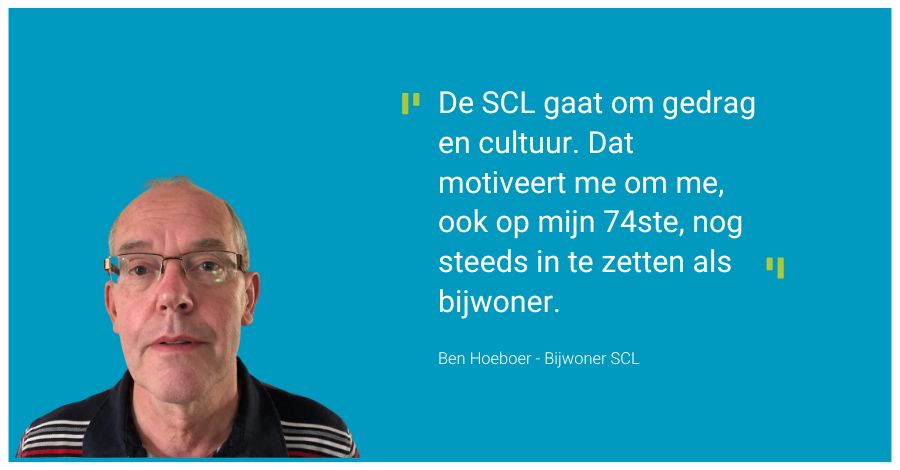Almost forty years of experience in the world of system certification: Ben Hoeboer has seen it all. From auditor and auditee to accreditation and notified body. Yet for him, it's not about the paperwork. "In system certification, it was often just about proof and documents. But I always missed the human factor. In the SCL, that does come to the fore. It's about behaviour and culture - and that motivates me, even at 74, to still dedicate myself as a resident."
What drives him
Ben wants to use his knowledge to further professionalise auditors. This sometimes produces immediately visible results. "The best moment is when you give feedback and the audit team starts working on it the same day. Then you see that your work really has an effect. That stimulates."
According to Ben, the profession requires specific qualities: good listening, keen observation, insight into human behaviour and the dynamics within companies. And above all: giving concrete feedback.
"I take a lot of notes. With these, I can always back up both areas of improvement and strengths with examples. Audit teams recognise themselves in these - and that makes the feedback much more powerful."
How does a annexe out?
An attendance ideally starts with a brief explanation to the audit team, although it doesn't always work out that way. "Sometimes you are received directly by management and there is no opportunity. Then I find a moment later. I always emphasise my duty of confidentiality and explain that I am not part of the audit team. I am there as a guest." During the day, Ben focuses on culture and behaviour. He checks that all auditors have balanced coverage and makes sure that in group interviews everyone has a chance to speak. Observations - both on-site and in interviews - are just as important to him.
If things do not go well
It may happen that an attendance does not go to plan. If so, he mentions this immediately in the final interview and records it in his report. "Sometimes a second attendance is necessary. That sounds strict, but it actually gives auditors a chance to develop further. In the end, what matters is that audits are reliable."
The impact of his role
He finds the influence of a bystander on safety in companies difficult to measure. Still, he sees a difference. "The more professional the auditor, the better he can challenge companies and make them think. Especially auditors who have an eye for people and culture make a difference." With a smile, Ben says: "Because of my experience, I do a lot automatically, perhaps 'unconsciously competent'. Still, I always ask at the end how the audit team experienced the attendance. That keeps me on my toes and also gives me learning points."
Cooperationng and professionalisation
Ben experiences the cooperation with NEN and fellow residents as constructive and stimulating. He calls the new, harmonised reporting template a big step forward. Yet he still sees a challenge: "Reporting is now harmonised, but how we assess observations sometimes still differs. How do we calibrate the residents themselves? That's where the next step lies."
